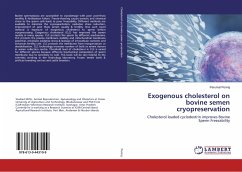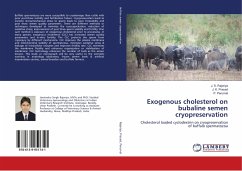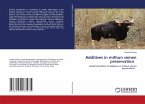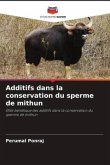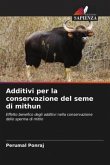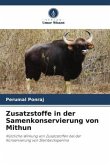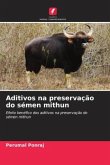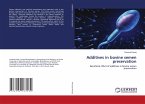Bovine spermatozoa are susceptible to cryodamage with poor post-thaw motility & fertilization failure. Freeze-thawing causes osmotic and chemical stress to the sperm cells leads to poor freezability. Different methods are available to minimize the cryocapacitation, oxidative stress reduction, improvement of post thaw semen quality & fertility. One such novel method is exposure of exogenous cholesterol to sperm before cryoprocessing. Exogenous cholesterol (CLC) has improved the semen quality in many species. CLC protects the sperm by different mechanisms. CLC protects the plasma membrane stability and mitochondrial membrane potential, minimizes oxidative stress & leakage of intracellular contents and enhances fertility rate. CLC protects the membrane from reorganization or destabilization. CLC technology increases number of bulls as semen donors in semen collection centre. Threshold level of cholesterol in CLC is varied for different species because different biochemical composition of sperm membrane due to sensitivity to cold. This book will be very helpful to the scientists working in the Andrology laboratory, frozen semen bank & artificial breeding centres and cattle breeders.
Bitte wählen Sie Ihr Anliegen aus.
Rechnungen
Retourenschein anfordern
Bestellstatus
Storno

